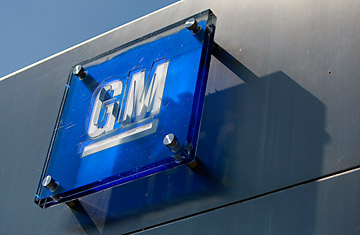
For General Motors, recovery always seems to be a case of two steps forward and one step back. The same day it reported an impressive 32% increase in sales during February, the automaker also announced it was recalling some 1.3 million compact cars built between 2005 and 2010, and suspending sales of 2010 Chevrolet Cobalt so it can fix a power steering assist.
The National Highway Traffic Safety Administration opened an investigation Jan. 27 into approximately 905,000 Cobalt models in the United States after receiving more than 1,100 complaints of loss of power steering, 14 crashes and one injury, GM disclosed. "We're playing this as honest and transparent as we can," said Mark Reuss, president of GM's North American Operations.
Many of the models being recalled have been on the road for several years. "We found that this is a condition that takes time to develop. It tends to occur in older models out of warranty," said Jamie Hresko, GM Vice President of Quality, who said the company began looking at the problem in 2009.
GM watchers generally took the news as a sign of GM's new assertiveness on image control. "The GM recall is a result of the heightened awareness that the manufacturers have on the quality of their products in the wake of Toyota's problems. We will continue to see automakers be very proactive about owning up to manufacturing problems before the issues become PR nightmares," says Jesse Toprak, an analyst with TrueCar.com.
GM president Reuss, meanwhile, initiated a sweeping reorganization of the company's U.S. sales and marketing staff on Tuesday that eliminates layers of management between him and local dealerships, and concentrates the company's marketing dollar in a new, smaller organization led by Susan Docherty, who has been vice president of sales and will now also oversee marketing.
The reason for the domestic shakeup, analysts say, is to revive GM's North American market, considered the heart of any GM recovery. Driving home that point, Reuss brought back experts from GM operations in Australia and Thailand to work on North American sales and marketing initiatives. "We needed expertise," explained Reuss, whose latest re-organization also sent Bryan Nesbitt, who had been general manager of the Cadillac Division since last fall back to GM's design staff where he will be in charge of GM's advance design studio. "Bryan's very talented. We need his expertise in design," said Reuss.
Toprak believes that GM is moving to regain some of the ground it lost to rivals during the company's financial crisis. Ford Motor Co. actually sold more cars than GM in February, the first time that has happened since August 1998. GM also faces stiffer competition from beleaguered Toyota, which is launching a new wave of sales incentives.
"It's become extremely clear to me since taking this role that there is a better way to structure this organization," said Reuss. "For the last three months our results have been on par with the industry. But I would have to say we have to accelerate our success in North America." Reuss also acknowledged that some of the pressure to get things done faster comes from the board of directors, led by former AT&T chief Ed Whitacre, who is settling into his role as GM's chief executive, and Wall Street veteran Steven Girsky, the UAW's choice for a seat on the board, who is now in charge of GM's strategic planning.
